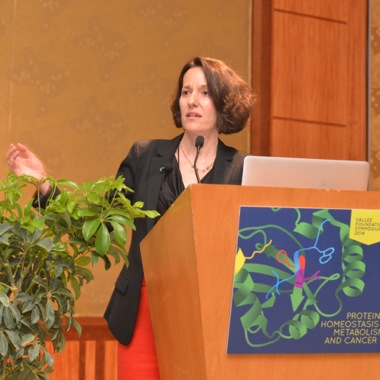
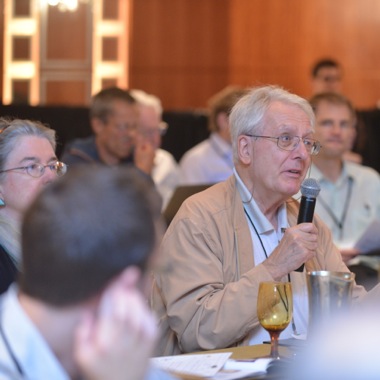
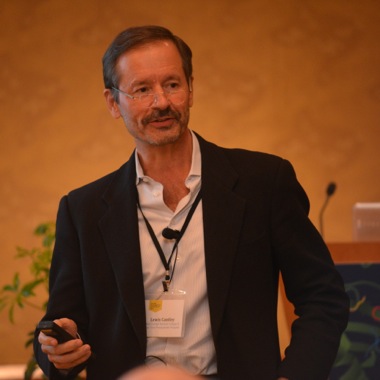
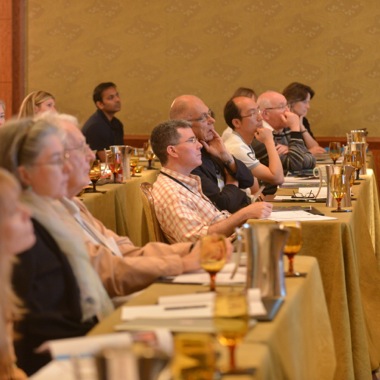
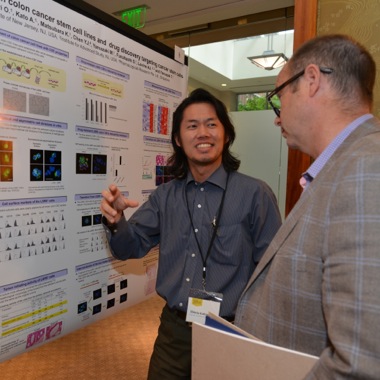
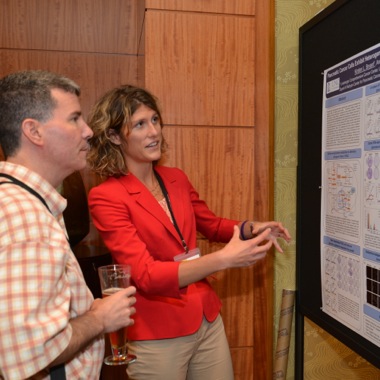
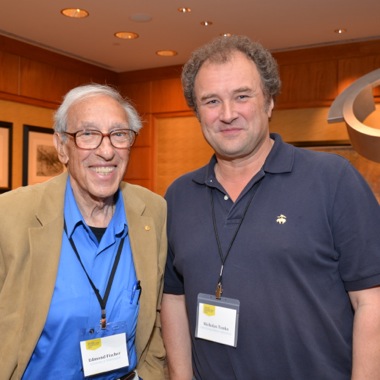
Vallee Foundation Symposium: August 4 & 5, 2014, Boston
Protein Homeostasis, Metabolism, and Cancer:
Major advances in biomedical research are being made in understanding disease mechanisms from the point of view of the genome, the metabolome and the proteome. At the 2014 Vallee Symposium, held at the Mandarin Oriental Hotel in Boston earlier this month, Peter Howley (VVP 2009), Wade Harper (VVP 2000), and Lew Cantley (VVP 2006) invited 16 other world-renowned scientists working in these areas to present their latest work.
The meeting was attended by national, international, and Boston-based scientists, including a number of former VVPs and Vallee Foundation Board members, who made sure the question period was as stimulating as the presentations. The scientific program included a lively poster session given by a group of twenty postdoctoral trainees, who presented technologies that complemented the work discussed in the plenary sessions.
In addition, Kirsty Spalding (Karolinska Institutet), David Tobin (Duke University Medical Center) and Feng Zhang (Massachusetts Institute of Technology), the first three recipients of Vallee Young Investigator Awards, were introduced by the foundation president James Adelstein, and each gave a brief description of their research interests.
In the first plenary session, Ivan Dikic (VPP 2014; Goethe University Medical School), Ana Maria Cuervo (Albert Einstein College of Medicine), Jennifer Lippincott-Schwartz (Eunice Kennedy Schriver National Institute of Child Health & Human Development), and Richard Youle (National Institute of Neurological Diseases & Stroke) discussed mechanisms of protein quality control by autophagy (self-eating). This discussion was complemented by talks on cell regulatory systems for protein folding and quality control from Franz-Ulrich Hartl (Max Planck Institute of Biochemistry) and Jeff Kelly (The Scripps Research Institute) .
Ubiquitin, a major pathway controlling protein abundance in cells, was also an important theme for discussion. Kylie Walters (National Cancer Institute) and Brenda Schulman (St Jude Children’s Research Hospital) presented new studies on the molecular architecture of machines (ubiquitin ligases and the proteasome) that control the turnover of a large fraction of the proteome, while the use of ubiquitin to control immune signaling pathways was described by Phil Cohen (VVP 2013; University of Dundee). Chris Claiborne (Takeda Pharmaceuticals International Co) described potential cancer therapeutics that target the ubiquitin system and autophagy.
The p53 tumor suppressor gene is one of the most frequently mutated genes in human cancer and is one of the most widely studied genes in biology. Arnold Levine (VVP 2013; Institute for Advanced Study) and Karen Vousden (Beatson Institute of Cancer Research) discussed the complex genetics and biochemistry of the p53 tumor suppressor. Nick Tonks (VVP 2012; Cold Spring Harbor Laboratory), Lew Cantley (VVP 2006, Weill Cornell Medical College & New York-Presbyterian Hospital), Craig Thompson (Memorial Sloane Kettering Cancer Center), and David Sabatini (Massachusetts Institute of Technology) discussed new approaches for cancer treatment that focus on the interface between oncogenic signaling and energy usage by cancer cells.
In the tradition of the Vallee Foundation that brings together talented multidisciplinary scientists from around the world, the exciting science and thought-provoking discussions that marked the Symposium were continued during breaks and over lunch and dinner, all of which fostered interactions among the participants.